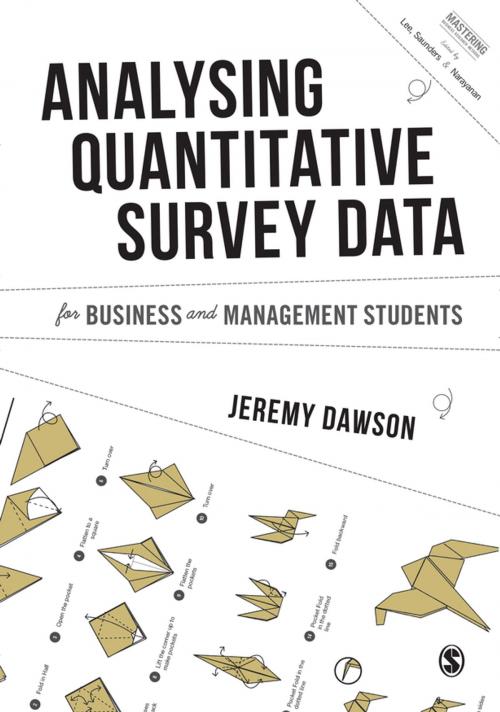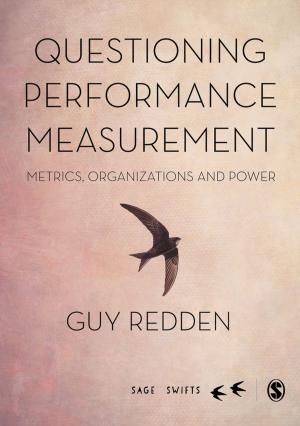Analysing Quantitative Survey Data for Business and Management Students
Business & Finance, Economics, Development & Growth| Author: | Jeremy F. Dawson | ISBN: | 9781473952836 |
| Publisher: | SAGE Publications | Publication: | November 10, 2016 |
| Imprint: | SAGE Publications Ltd | Language: | English |
| Author: | Jeremy F. Dawson |
| ISBN: | 9781473952836 |
| Publisher: | SAGE Publications |
| Publication: | November 10, 2016 |
| Imprint: | SAGE Publications Ltd |
| Language: | English |
In Analysing Quantitative Survey Data, Jeremy Dawson introduces you to the key elements of analysing quantitative survey data using classical test theory, the measurement theory that underlies the techniques described in the book. The methodological assumptions, basic components and strengths and limitations of this analysis are explained and with the help of illustrative examples, you are guided through how to conduct the key procedures involved, including reliability analysis, exploratory and confirmatory factor analysis.
Ideal for Business and Management students reading for a Master’s degree, each book in the series may also serve as reference books for doctoral students and faculty members interested in the method.
Part of SAGE’s Mastering Business Research Methods Series, conceived and edited by Bill Lee, Mark N. K. Saunders and Vadake K. Narayanan and designed to support researchers by providing in-depth and practical guidance on using a chosen method of data collection or analysis.
Watch the editors introduce the Mastering Business Research Methods series
In Analysing Quantitative Survey Data, Jeremy Dawson introduces you to the key elements of analysing quantitative survey data using classical test theory, the measurement theory that underlies the techniques described in the book. The methodological assumptions, basic components and strengths and limitations of this analysis are explained and with the help of illustrative examples, you are guided through how to conduct the key procedures involved, including reliability analysis, exploratory and confirmatory factor analysis.
Ideal for Business and Management students reading for a Master’s degree, each book in the series may also serve as reference books for doctoral students and faculty members interested in the method.
Part of SAGE’s Mastering Business Research Methods Series, conceived and edited by Bill Lee, Mark N. K. Saunders and Vadake K. Narayanan and designed to support researchers by providing in-depth and practical guidance on using a chosen method of data collection or analysis.
Watch the editors introduce the Mastering Business Research Methods series















